Hostage deal between Israel and Hamas could be announced as early as tonight, sources say
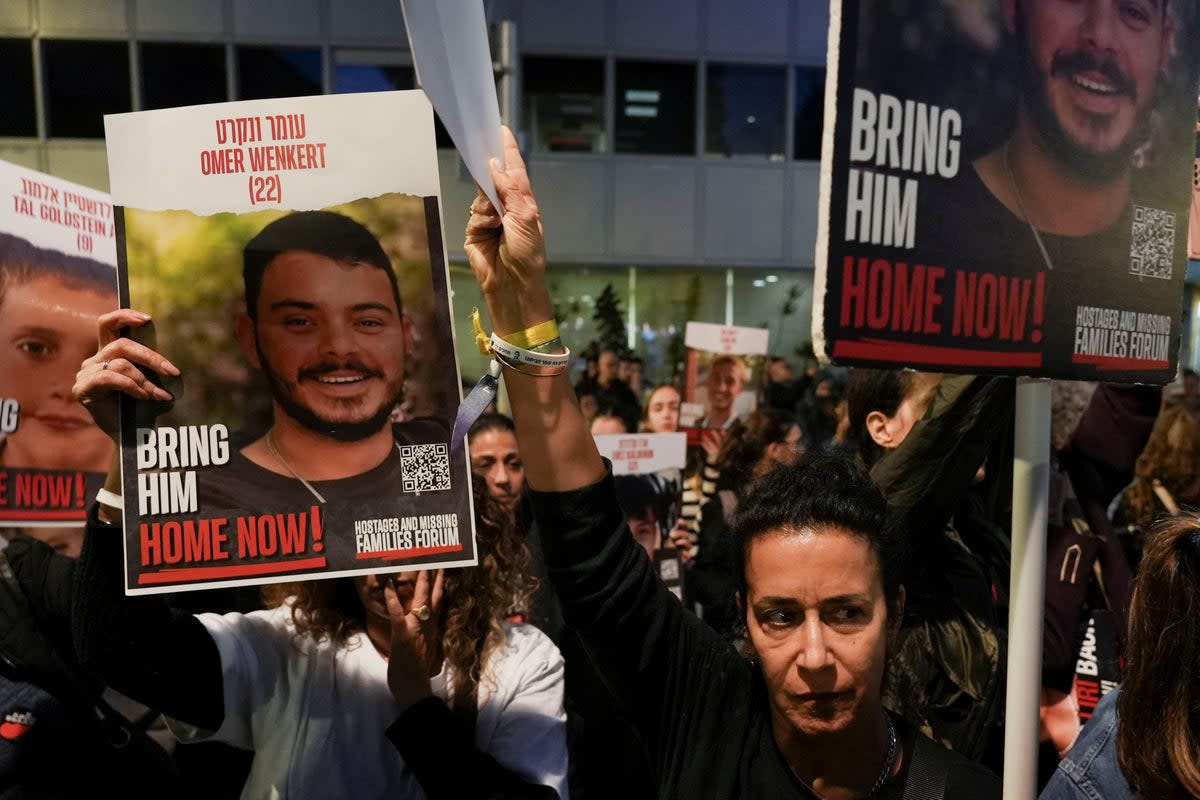
Benjamin Netanyahu has called on his government to back a hostage release deal – with the announcement of an agreement with Hamas expected as early as tonight, diplomatic sources have told The Independent.
A deal – which has been mediated by Qatar – would see dozens of hostages being held inside Gaza freed and a temporary pause in the Israeli military offensive on the besieged territory. The Independent understands that the deal could be implemented 24 hours after it is announced.
At a late meeting, the Israeli prime minister, Mr Netanyahu, vowed to continue the war against Hamas after any pause in hostilities and said an agreement had the full support of security officials. The hostages’ return is a “sacred and top goal”, Mr Netanyahu said in a video message to the cabinet, “but we will not stop until we have total victory”.
Qatar’s foreign ministry spokesperson Majed al-Ansari said the two sides were at “the closest point we ever had been in reaching an agreement’ adding that negotiations were at a “critical and final stage”.
US President Joe Biden, said: "My team is in the region shuttling between capitals. We're now very close, very close, to bringing some of these hostages home very soon," he said. "But I don't want to get into the details because nothing is done until it's done."
John Kirby, National Security Council spokesperson, said that the US was "working very very hard" to push the deal over the line, but acknowledged that the final hours were the most "delicate". He would not confirm if US citizens are among the 50 or more hostages that are expected to be released if the deal goes through.
Sources have told The Independent the deal concerned Israelis or those with dual nationalities and that for every 10 additional hostages Hamas releases there may be a day extension to the four-day pause that is part of the expected agreement.
"We're closer than we've been," Mr Kirby said. "We're obviously working on this very very hard, and we're all hopeful... But we... do not want to say anything in these delicate hours that could put a deal at greater risk."
It came after Ismail Haniyeh, chief of the militant group’s political wing, confirmed on Tuesday morning that Hamas was “close to reaching a deal on a truce” and that it had delivered its response to mediators from Qatar.
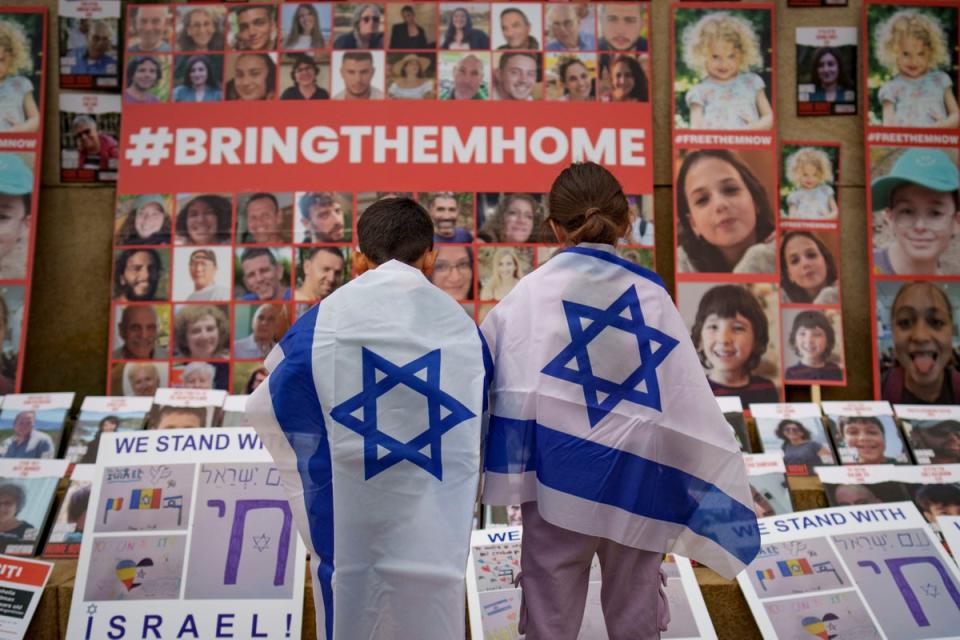
A Hamas official. Issat el Reshiq, told Qatar’s flagship TV channel Al Jazeera that negotiations were centred on how long the truce would last, arrangements for delivery of aid into Gaza and details of the exchange of captives.
Sources close to the negotiations told The Independent that as many as 75 civilian hostages, including dozens of children, could be released alongside a pause in the fighting. Previous attempts to get this far have fallen at the last hurdle, one diplomatic source said, adding that it was important to be cautious as so far nothing has been signed.
Media reports have said that it could involve a multi-day truce of up to five days, comprising a ceasefire on the ground and limits to Israeli air operations over southern Gaza. In exchange for the hostages, up to 300 Palestinians would be released from Israeli jails, according to a report from Axios suggesting that a ratio of three prisoners for every one hostage would be used. The Independent understands that the exact ratio of how many Palestinian prisoners would be released to the number of Israeli hostages has not been determined.
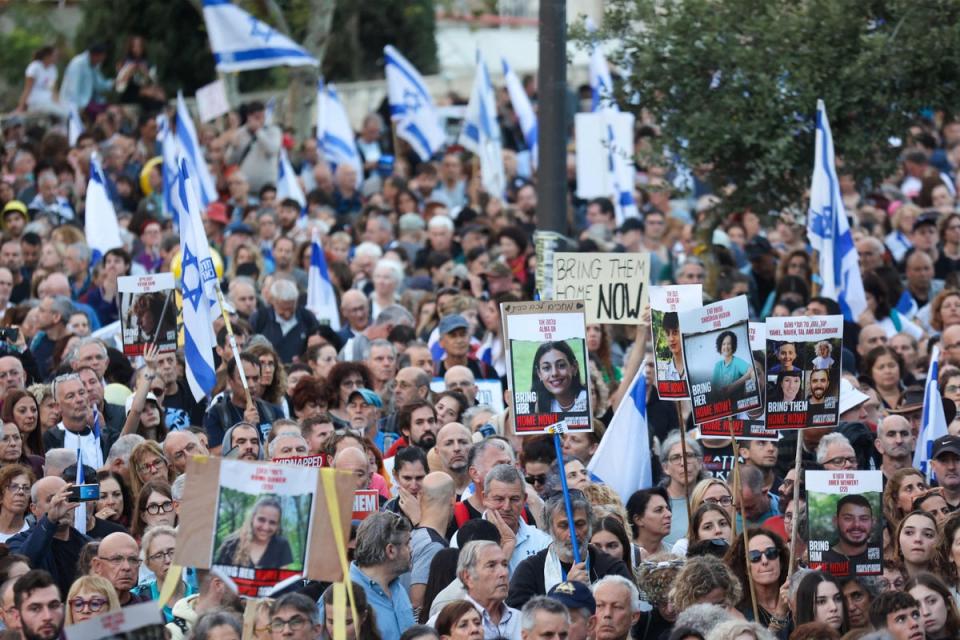
Kamelia Hoter Ishay, the grandmother of 13-year-old Gali Tarshansky, who is believed to be held in Gaza, said she was trying not to follow all the deal reports because she was afraid of being disappointed. "The only thing I am waiting for is the phone call from my daughter, Reuma, who will say, 'Gali is coming back.' And then I'll know that it's really over and I can breathe a sigh of relief and say that's it, it's over," she told Reuters.
Negotiators have been working around the clock to secure the release of about 240 mostly Israeli hostages, including babies under one year old, who were seized on 7 October when Hamas launched it unprecedented attacks into southern Israel which killed more than 1,200 people, mostly civilians. So far only four female hostages have been released in deals brokered by Qatar, the US and Egypt.
Pressure has mounted on the Israeli authorities from the families, who have been increasingly alarmed about the safety of their loved ones as Israel has launched a ferocious bombardment of the 42-km- besieged Gaza Strip.
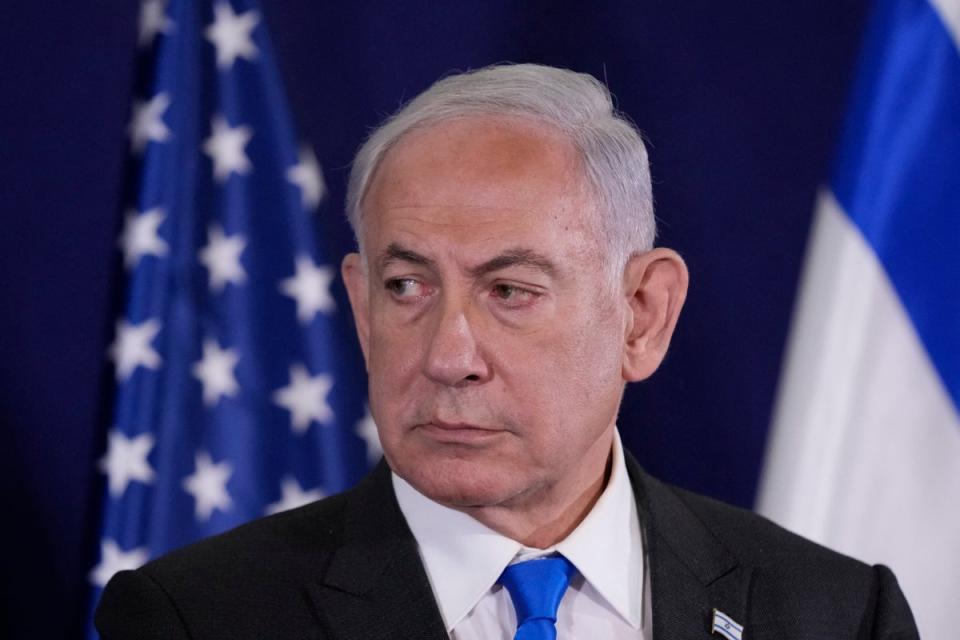
Sources close to the negotiators have told The Independent the talks had been fraught and have not touched upon the exchange of military personnel. Although Israel has in the past firmly rejected requests for ceasefire, one source said a ceasefire or a pause was essential to be able to move the hostages safely.
Mirjana Spoljaric, president of the International Committee of the Red Cross (ICRC), met Haniyeh in Qatar on Monday to "advance humanitarian issues" related to the conflict, the Geneva-based ICRC said in a statement. She also separately met Qatari authorities.
The ICRC – which transported the four previously-released hostages to Egypt a few weeks ago – said it was not part of negotiations aimed at releasing the hostages, but as a neutral intermediary it was ready "to facilitate any future release that the parties agree to".
Talks of an imminent deal have swirled for days. Mr Biden raised hopes on Monday. saying he thought a deal to free the hostages was close. “I believe so,” Mr Biden said when asked whether a hostage deal was near, and crossed his fingers. On Sunday, Israel’s ambassador to the United States, Michael Herzog, told ABC that Israel was hopeful a significant number of hostages could be released by Hamas "in coming days."
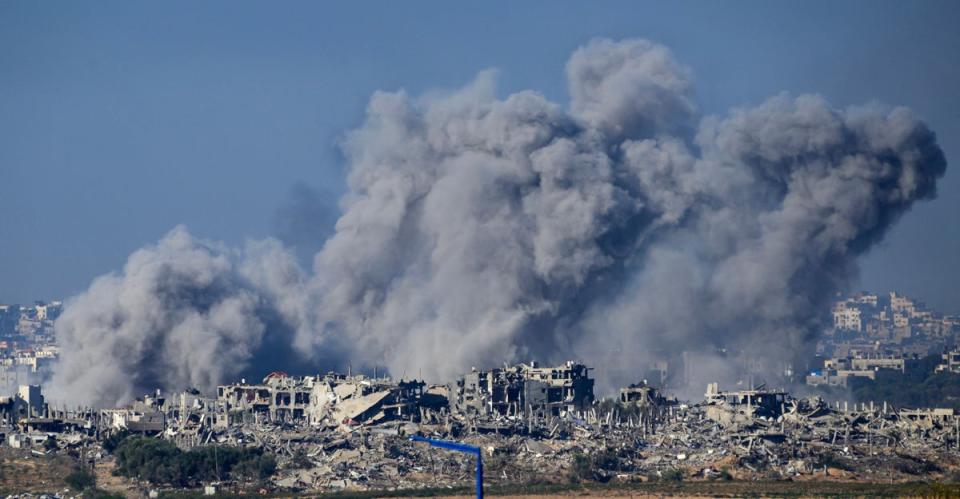
The same day, the Qatari prime minister, sheikh Mohammed Bin Abdulrahman al-Thani, told a press conference in Doha that the main obstacles to a deal were now “very minor”, with mainly “practical and logistical” issues to surmount.
Mr Netanyahu has faced mounting criticism for not prioritising a hostage deal as Israeli forces have been pushing deeper into Gaza with a possible operation set to open in the south of the besieged enclave.
Israel has vowed to destroy Hamas. In the wake of the attack on 7 October the Israeli military launched a ferocious bombing campaign and imposed a crippling blockade on Hamas-run Gaza. Across the territory, there are shortages of food, water and fuel for generators to power basic infrastructure.
The health ministry inside the Hamas-controlled territory more than 13,000 Palestinians including 5,500 children have been killed. Israeli ground troops and artillery have penetrated deep inside the strip, including encircling and entering hospitals they accuse militants of using as bases.
The Israeli bombardment has turned much of Gaza, particularly northern Gaza where military operations have been focused, into a wasteland, with about two-thirds of the The has shifted to the Jabaliya camp, a dense warren of concrete buildings near the northern Gaza City that houses refugees from the 1948 Arab-Israeli war. Israel has been bombarding the area for weeks, and the military said Hamas fighters have regrouped there and in other eastern districts after being pushed out of much of Gaza City.
Fighting has also intensified outside the Indonesian Hospital on the outskirts of Jabaliya. Health officials in Gaza said on Tuesday that hundreds of patients and displaced people are trapped inside with dwindling supplies after some 200 were evacuated the day before. Palestinian officials said an Israeli shell struck the hospital on Monday, killing 12 people. Israel denied shelling the hospital, saying its troops returned fire on militants who targeted them from inside.


